Bat Creek Stone
Cherokee alphabet, proof of ancient North American Jews, or just a hoax?
When John W. Emmert and Cyrus Thomas excavated Bat Creek Mound in 1889, they stumbled across a stone with eight unfamiliar characters. When Thomas saw it, he announced it as “beyond question letters of the Cherokee alphabet.”
The stone was forgotten for around 70 years until an ethnologist named Joseph Mahan was confused by the fact that the letters didn’t look like Cherokee. He sent a photo to his friend Cyrus Gordon, who realized that flipped upside down, the characters looked exactly like Paleo-Hebrew letters.
This caused a stir within the scientific community. If true, the word to the left of the comma-shaped word divider meant “for Judea.” In 1988, Professor J. Huston McCulloch reinforced the idea of the tablet showing Hebrew. In 1991, Mary Kwas and Robert Mainfort found out that it was likely Emmert had carved the marks into the stone as a means of job security. If he found an artifact in one of the mounds, that meant he would get more funding to explore more mounds.
In 2004, Mainfort and Kwas discovered a Masonic reference book from 1870 that had a picture nearly identical to the Bat Creek inscription. This eliminated almost all doubt that the Bat Creek inscription was fake.
The stone was in the possession of the Museum of Natural History until 2001, then was loaned to the McClung Museum in Tennessee from 2002 to 2013. In 2015, it was moved to its current location at the Museum of the Cherokee in Cherokee, North Carolina.
As of January 2023: no employee of the museum has heard of or seen the stone. Although the museum is still well worth the visit it appears that the stone is no longer housed there.
Know Before You Go
The museum is open from 9 a.m. to 5 p.m.
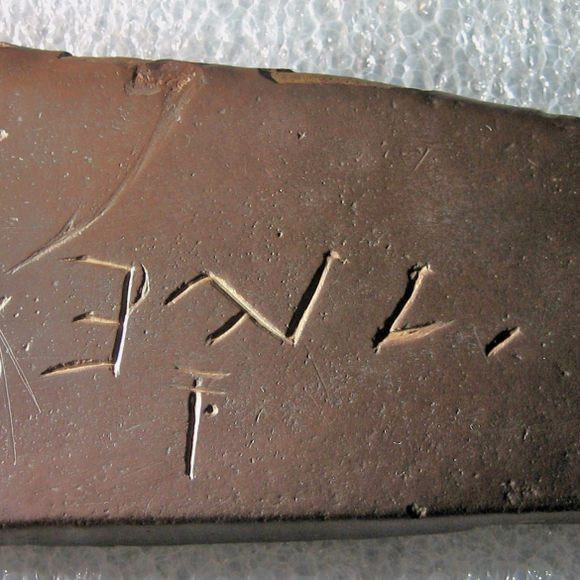

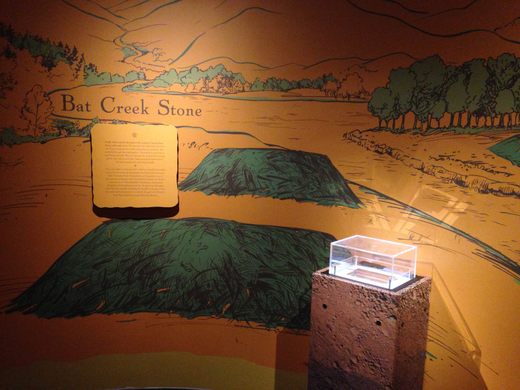
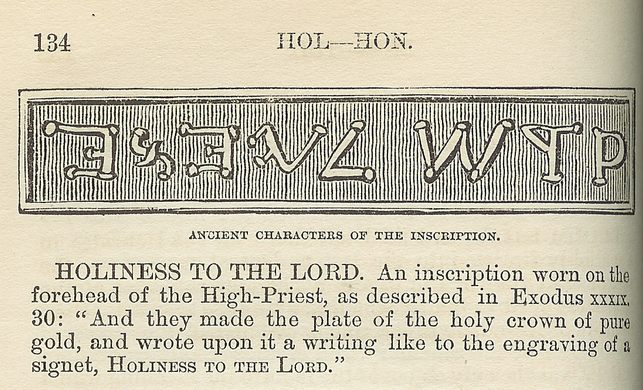
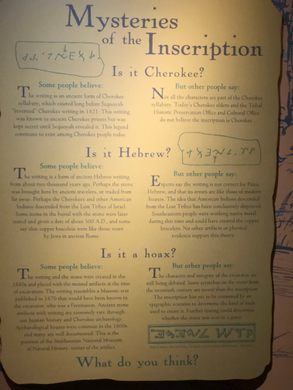




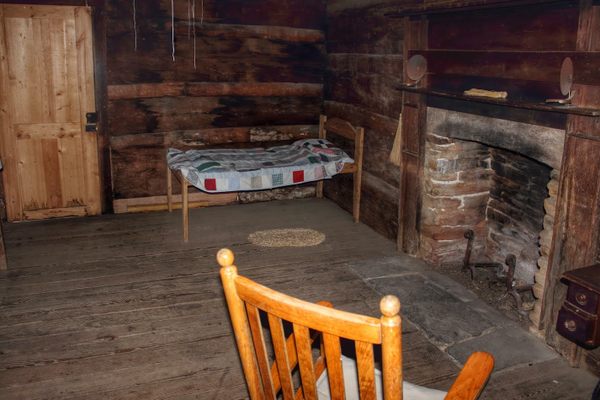







Follow us on Twitter to get the latest on the world's hidden wonders.
Like us on Facebook to get the latest on the world's hidden wonders.
Follow us on Twitter Like us on Facebook